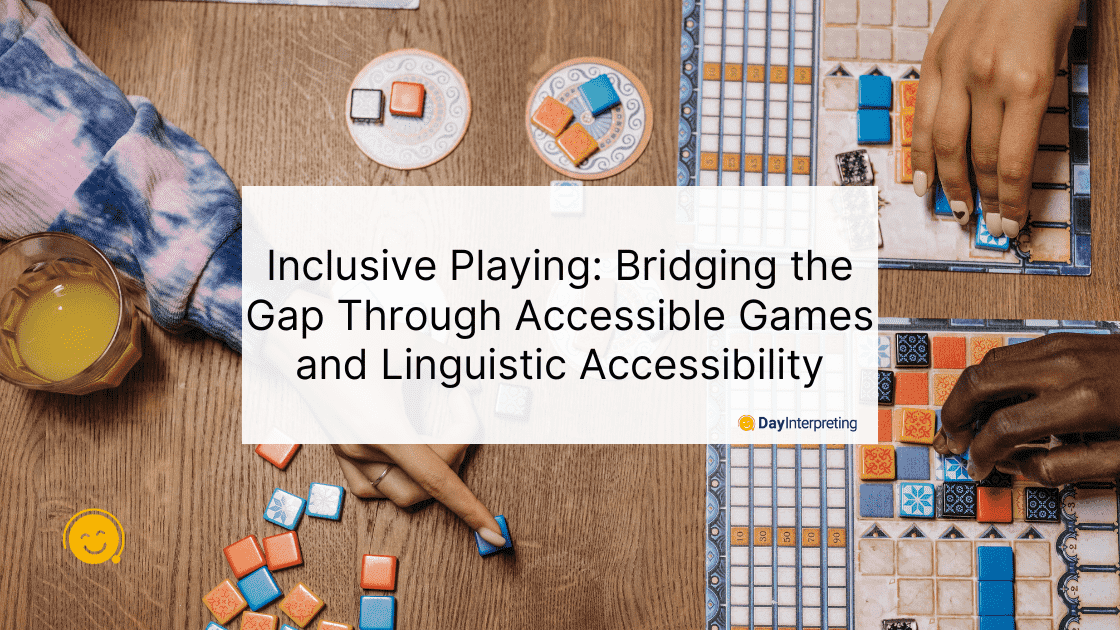In a world that’s becoming increasingly interconnected, fostering inclusivity is not just a goal but a necessity. One area where this principle has made remarkable strides is in the realm of gaming. Over the years, game developers and innovators have worked diligently to ensure that gaming experiences are accessible to all individuals, regardless of their physical abilities. One groundbreaking example of this is Lego’s introduction of Braille Learning Blocks, a pivotal step towards fostering “Inclusive Playing.” This article delves into the significance of accessible games, focusing on Lego’s Braille Learning Blocks as a cornerstone of this movement. Moreover, it explores the broader benefits of inclusive playing and the opportunities it creates while connecting these concepts to the realm of linguistic accessibility.
Lego’s Braille Learning Blocks: A Touch of Innovation
Lego, a company renowned for its iconic interlocking plastic bricks, has transcended the boundaries of play to embrace inclusivity in a remarkable way. The introduction of Braille Learning Blocks is a testament to their commitment to creating opportunities for all individuals, including those who are blind or visually impaired. These blocks allow people of all ages to engage in a tactile learning experience, fostering not just fun but also skill development.
The Braille Learning Blocks seamlessly merge play with education. By incorporating the Braille system, a tactile writing system used by people who are blind or visually impaired, Lego enables everyone to learn Braille while building and playing. This convergence of education and play has profound implications, as it promotes cognitive development and language acquisition. Additionally, it opens up a world of exploration for people with visual impairments, enhancing their creativity and problem-solving abilities.
Inclusive Playing: A World of Benefits
The concept of “Inclusive Playing” extends far beyond the tactile realm of Braille Learning Blocks. It encapsulates a philosophy that aims to eliminate barriers and create equal opportunities for all gamers. Whether it’s adapting video games with customizable controls, adding subtitles for the deaf and hard of hearing, or incorporating haptic feedback for individuals with limited sight, the gaming industry is taking remarkable steps towards making virtual worlds accessible to everyone.
Fosters Empathy and Understanding
Inclusive games have the potential to promote empathy and understanding among players. When gamers encounter characters with disabilities in a game, it can challenge preconceived notions and lead to a more empathetic perspective in the real world.
Promotes Cognitive Development
Accessible games often require players to think creatively and problem-solve in unique ways. This can lead to enhanced cognitive development, benefiting players of all abilities.
Encourages Social Interaction
Multiplayer games that are designed inclusively enable people with different abilities to collaborate and interact. This promotes socialization and helps build connections among diverse groups of players.
Empowers Individuals
Accessible games empower individuals with disabilities by providing them with opportunities for achievement and success. This can boost self-confidence and contribute to an improved sense of self-worth.
Opportunities and Linguistic Accessibility
The concept of inclusive playing extends its reach to encompass linguistic accessibility. Just as games adapt to be more inclusive, how we communicate and provide information should be equally accommodating to all individuals. This is where linguistic accessibility comes into play.
Adaptive Communication
Just as game developers adapt their interfaces for different abilities, linguistic accessibility involves tailoring communication methods to suit diverse audiences. This includes using simple language, providing visual aids, and offering alternative formats such as audio descriptions or sign language interpretation.
Language Localization
Inclusive playing also aligns with the idea of language localization. Games and communication materials can be translated into multiple languages, allowing individuals from different linguistic backgrounds to participate and engage fully.
Digital Accessibility
As gaming experiences move increasingly online, digital accessibility becomes vital. This involves designing websites, interfaces, and communication platforms that are usable by individuals with disabilities. Screen readers, alt text for images, and keyboard navigation are just a few examples of tools that enhance digital accessibility.
Cultural Sensitivity
Just as games must be culturally sensitive to resonate with diverse players, linguistic accessibility requires understanding cultural nuances. Tailoring communication to respect cultural differences ensures that everyone can engage meaningfully.
Conclusion
Inclusive playing, in plain language, is not just a trend; it’s a movement that represents the progress of society towards a more accepting and integrated future. Lego’s Braille Learning Blocks exemplify the impact that innovative thinking can have on creating opportunities for all individuals to learn, play, and thrive. Moreover, the broader concept of inclusive playing brings numerous benefits, fostering empathy, cognitive development, and social interaction across language barriers. By embracing linguistic accessibility alongside inclusive game design, we can ensure that our communication methods are just as welcoming and accommodating to diverse audiences. As we move forward, the intersection of inclusive playing and linguistic accessibility will continue to shape a more inclusive and connected world for all.





0 Comments